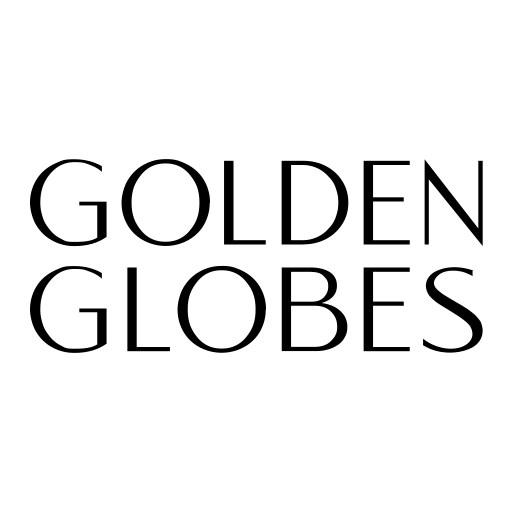A natural cooling mechanism has been shielding the world’s mountain glaciers from increasingly warm summer melt seasons, but new research by an international science team says the protective process will break down by mid-century.
Glaciers at…

A natural cooling mechanism has been shielding the world’s mountain glaciers from increasingly warm summer melt seasons, but new research by an international science team says the protective process will break down by mid-century.
Glaciers at…

October 16, 2025
VANCOUVER, BC, Oct. 16, 2025 /CNW/ – (TSX: LUN) (Nasdaq Stockholm: LUMI) Lundin Mining Corporation (“Lundin Mining” or the “Company”) is pre-announcing certain items impacting the Company’s earnings, adjusted earnings before interest, taxes, depreciation and amortization (“adjusted EBITDA”)1, adjusted earnings1 and adjusted earnings per share1 for the three months ending September 30, 2025. Unless otherwise stated, dollar amounts are presented in United States dollars.
Revenue and Provisional Pricing Adjustments
Revenue in the third quarter 2025 is expected to be positively impacted by unaudited provisional pricing adjustments on prior period concentrate sales of approximately $11 million on a pre-tax basis. These adjustments primarily include upward adjustments in relation to prior period copper and gold sales.
Revenue in the third quarter 2025 is also expected to be impacted by a timing difference between the production and shipment dates of approximately 20,000 tonnes of copper concentrate (approximately 5,100 tonnes of contained payable copper). A shipment of copper concentrate from Caserones scheduled for September was delayed into October due to weather related issues. The related revenue and cost of goods sold are expected to be recorded in the fourth quarter 2025.
Foreign Exchange and Derivatives
Unaudited realized foreign exchange gains and unaudited realized losses on derivative contracts in the third quarter 2025 are not expected to be significant.
In the third quarter 2025 the Company is expected to recognize certain non-cash items that will impact the Company’s earnings but not adjusted EBITDA, adjusted earnings or adjusted earnings per share. These include an unaudited unrealized loss of approximately $26 million on a pre-tax basis related to the mark-to-market valuation of the Company’s unexpired derivative contracts, primarily due to rising gold prices during the quarter. Unaudited unrealized foreign exchange gains are not expected to be significant.
Third Quarter 2025 Results Conference Call and Webcast Details
The Company will release its third quarter 2025 operations and financial results after market close on Wednesday, November 5, 2025, and will hold a webcast and conference call on Thursday, November 6, 2025 to present the results. Webcast and conference call details are provided below.
Webcast / Conference Call Details:
Date: Thursday, November 6, 2025
Time: 7:00 AM PT | 10:00 AM ET
Listen Only Webcast: WEBCAST LINK
Dial In for Investor & Analyst Q&A: DIAL IN LINK
To participate in the call click on the dial in LINK above and complete the online registration form. Once registered you will receive the dial-in information and a unique PIN to join the call and ask questions.
A replay of the webcast will be available by clicking on the webcast LINK above and will be archived on the Company’s website for a limited period of time.
|
__________________________ |
|
1 These measures are non-GAAP measures. These performance measures have no standardized meaning within generally accepted accounting principles under International Financial Reporting Standards and, therefore, amounts presented may not be comparable to similar data presented by other mining companies. For additional details please refer to the Company’s discussion of non-GAAP and other performance measures in its Management’s Discussion and Analysis for the three and six months ended June 30, 2025 which is available on SEDAR+ at www.sedarplus.com. |
About Lundin Mining
Lundin Mining is a diversified Canadian base metals mining company with operations or projects in Argentina, Brazil, Chile, and the United States of America, primarily producing copper, gold and nickel.
The information was submitted for publication, through the agency of the contact persons set out below on October 16, 2025 at 16:30 Pacific Time.
Cautionary Statement on Forward-Looking Information
Certain of the statements made and information contained herein are “forward-looking information” within the meaning of applicable Canadian securities laws. All statements other than statements of historical facts included in this document constitute forward-looking information, including but not limited to statements regarding the Company’s financial results, impacts thereto and the accounting therefor. Words such as “believe”, “expect”, “anticipate”, “contemplate”, “target”, “plan”, “goal”, “aim”, “intend”, “continue”, “budget”, “estimate”, “may”, “will”, “can”, “could”, “should”, “schedule” and similar expressions identify forward-looking information.
Forward-looking information is necessarily based upon various estimates and assumptions including, without limitation, the expectations and beliefs of management, including that the Company can access financing, appropriate equipment and sufficient labour; assumed and future price of copper, gold, zinc, nickel and other metals; anticipated costs; ability to achieve goals; the prompt and effective integration of acquisitions and the realization of synergies and economies of scale in connection therewith; that the political environment in which the Company operates will continue to support the development and operation of mining projects; and assumptions related to the factors set forth below. While these factors and assumptions are considered reasonable by Lundin Mining as at the date of this document in light of management’s experience and perception of current conditions and expected developments, such information is inherently subject to significant business, economic and competitive uncertainties and contingencies. Known and unknown factors could cause actual results to differ materially from those projected in the forward-looking information and undue reliance should not be placed on such information. Such factors include, but are not limited to: dependence on international market prices and demand for the metals that the Company produces; political, economic, and regulatory uncertainty in operating jurisdictions, including but not limited to those related to permitting and approvals, nationalization or expropriation without fair compensation, environmental and tailings management, labour, trade relations, and transportation; risks relating to mine closure and reclamation obligations; health and safety hazards; inherent risks of mining, not all of which related risk events are insurable; risks relating to tailings and waste management facilities; risks relating to the Company’s indebtedness; challenges and conflicts that may arise in partnerships and joint operations; risks relating to development projects; risks that revenue may be significantly impacted in the event of any production stoppages or reputational damage in Chile; the impact of global financial conditions, market volatility and inflation; business interruptions caused by critical infrastructure failures; challenges of effective water management; exposure to greater foreign exchange and capital controls, as well as political, social and economic risks as a result of the Company’s operation in emerging markets; risks relating to stakeholder opposition to continued operation, further development, or new development of the Company’s projects and mines; any breach or failure information systems; risks relating to reliance on estimates of future production; risks relating to litigation and administrative proceedings which the Company may be subject to from time to time; risks relating to acquisitions or business arrangements; risks relating to competition in the industry; failure to comply with existing or new laws or changes in laws; challenges or defects in title or termination of mining or exploitation concessions; the exclusive jurisdiction of foreign courts; the outbreak of infectious diseases or viruses; risks relating to taxation changes; receipt of and ability to maintain all permits that are required for operation; minor elements contained in concentrate products; changes in the relationship with its employees and contractors; the Company’s Mineral Reserves and Mineral Resources which are estimates only; payment of dividends in the future; compliance with environmental, health and safety laws and regulations, including changes to such laws or regulations; interests of significant shareholders of the Company; asset values being subject to impairment charges; potential for conflicts of interest and public association with other Lundin Group companies or entities; activist shareholders and proxy solicitation firms; risks associated with climate change; the Company’s common shares being subject to dilution; ability to attract and retain highly skilled employees; reliance on key personnel and reporting and oversight systems; risks relating to the Company’s internal controls; counterparty and customer concentration risk; risks associated with the use of derivatives; exchange rate fluctuations; the terms of the contingent payments in respect of the completion of the sale of the Company’s European assets and expectations related thereto; and other risks and uncertainties, including but not limited to those described in the “Risks and Uncertainties” section of the Company’s MD&A for the three and six months ended June 30, 2025 and the “Risks and Uncertainties” section of the Company’s Annual Information Form for the year ended December 31, 2024, which are available on SEDAR+ at www.sedarplus.ca under the Company’s profile.
All of the forward-looking information in this document are qualified by these cautionary statements. Although the Company has attempted to identify important factors that could cause actual results to differ materially from those contained in forward-looking information, there may be other factors that cause results not to be as anticipated, estimated, forecasted or intended and readers are cautioned that the foregoing list is not exhaustive of all factors and assumptions which may have been used. Should one or more of these risks and uncertainties materialize, or should underlying assumptions prove incorrect, actual results may vary materially from those described in forward-looking information. Accordingly, there can be no assurance that forward-looking information will prove to be accurate and forward-looking information is not a guarantee of future performance. Readers are advised not to place undue reliance on forward-looking information. The forward-looking information contained herein speaks only as of the date of this document. The Company disclaims any intention or obligation to update or revise forward‐looking information or to explain any material difference between such and subsequent actual events, except as required by applicable law.
SOURCE Lundin Mining Corporation

For further information, please contact: Stephen Williams, Vice President, Investor Relations: +1 604 806 3074; Robert Eriksson, Investor Relations Sweden: +46 8 440 54 50

If you’re one of the billions of people who use Meta apps, you’ve more than likely seen or interacted with Meta AI. Its presence in popular apps like Facebook, Instagram and WhatsApp feels significantly less useful than something like the new
A conference abstract presented at the European Society for Medical Oncology (ESMO) 2025 meeting looks at…

British Gas’s parent company Centrica, Euro Garages and Holland & Barrett are among the latest companies named and shamed by the government for underpaying staff.
The Department for Business and Trade (DBT) has released a list of nearly 500 employers fined more than £10m for failing to pay the national minimum wage. It said 42,000 workers were repaid more than £6m.
Business Secretary Peter Kyle said: “I know that no employer wants to end up on one of these lists. But our Plan to Make Work Pay cracks down on those not playing by the rules.”
All three firms blamed past payroll problems for the underpayments and said all affected staff had been remunerated.
All the employers named on DBT’s list were fined up to double the total amount they owed to staff, some for underpayments dating as far back as 2013.
Paul Nowak, the TUC general secretary, said there was “no excuse for workers being cheated out of money they’re owed. It’s bad for workers, families and the economy.”
According to the government’s latest investigations between 2018 and 2023, Euro Garages, known as EG Group, is top of the list short-changing 3,317 of its workers by a hefty sum of more than £824,000.
The company, which was co-founded by billionaire brothers Mohsin and Zuber Issa but who have since stepped back from leading the firm, has significantly reduced its UK operations over the past year.
It sold its UK petrol forecourts business and Cooplands bakeries, but still runs some Starbucks franchise stores across the UK.
In a statement, an EG Group spokesperson said: “These historic payroll issues that took place between 2015 and 2019 have been fully rectified.
“All affected employees were subsequently reimbursed in full in agreement with HMRC.”
The firm said it improved its systems to make sure it complied with UK laws and maintained that it was committed to treating employees fairly.
Centrica, which owns British Gas, was eighth on DBT’s list having failed to pay £167,815 to 356 workers.
The energy giant recently bought one of the biggest liquefied natural gas (LNG) facilities in the UK for £1.7bn, extending the firm’s control of the country’s energy supplies.
A Centrica spokesperson said the company supported fair pay and pointed to technical faults in its payroll system between 2015 and 2019.
“This issue relates to a small number of historic technical errors which was put right as soon as it was identified.
“The total underpayment related primarily to salary sacrifice arrangements and training bonds, rather than take home pay, and was around £160,000 – our UK annual wage bill is currently around £1.2bn.”
High street retailer Holland & Barrett is next on the list after it failed to pay more than £153,000 to 2,551 workers.
In a statement, the company said past issues with minimum wage payments, between 2015 and 2021, had since been fixed in 2022.
“This was not a case of deliberate underpayment,” said a spokesperson.
“The issue stemmed from legacy practices such as requiring team members to wear specific shoes, unpaid training completed at home, and time spent preparing for shifts at our Burton distribution site.”
Holland & Barrett said it remained “committed to fair pay” and that it was paying store staff about 5% above the National Living Wage and follows all rules.
“While we respect the transparency of the scheme, we are disappointed that naming has occurred over three years after the matter was settled.”
The minimum wage for over 21s, known officially as the National Living Wage, is currently £12.21 an hour. Younger employees – aged between 16 and 20 – are entitled to receive the National Minimum Wage, which is set at £10 and hour.
Global geopolitics has been a tremendous source of uncertainty in 2025. Compounding the uncertainty has been questions about the short-term and permanent impact these changes will have on the real economy, particularly on trade and private-sector investment. Major forecasters have been revising their forecasts, as the underlying assumptions about the impact of US tariffs change. For the EU, growth projections were considerably revised downward in the spring (European Commission 2025), but now the consensus seems to be shifting, recognising a better than expected economic performance in the short term. The lack of strong EU retaliation on US tariffs, the partially reduced uncertainty due to the trade agreements, the potential opportunities emerging from a multi-polar system, and a boost to public investment (for defence) are leading most institutions to revise their growth expectations slightly upwards (Lagarde 2025; OECD 2025, IMF 2025). But what is happening to investment by European firms? How are they responding to the changed trading environment and other political shifts, such as the Trump administration’s position on climate change? How do the reactions of European firms differ from those in the US?
The 2025 edition of the European Investment Bank Investment Survey (EIBIS) sheds some light on these questions (EIB 2025). Conducted annually since 2016, the EIBIS is a unique survey of approximately 13,000 firms across all 27 EU members, with an additional sample from the US. The survey collects data on the characteristics and performance of firms, past investment activities and future plans, sources of finance, financing issues, and other challenges such as climate change and digital transformation. Interviews for the 2025 edition of the survey were carried out over the summer.
After several years of acceleration, the investment appetite of European and American firms is weakening (Figure 1). However, instead of the feared collapse, investment seems to be stabilising as firms continue to invest. The share of EU firms investing remained roughly stable at 86%, compared with 87% in last year’s survey. A marginally higher share of EU firms still expects to increase rather than decrease investment in 2025, although this indicator also points to an easing of investment growth. The pattern in the US is broadly similar, but US firms’ expectations have been revised down from a much more buoyant level.
Figure 1 Investment cycle and evolution of investment expectations
Investment activities differ on the two sides of the Atlantic. While EU firms are more likely to invest in replacing capacity, US firms are looking to expand. In the EU, firms have devoted a significant portion of their investment (35%) to intangible assets (such as research and development, training, and software), investing less in land, buildings, and infrastructure than US firms (17 versus 22%). Over the next three years, EU firms will continue to prioritise investment that replace rather than expand capacity, with the share of firms investing to expand operations 11 percentage points below that of the US (26% of EU firms versus 37% of US firms).
While EU firms continue to invest, they have a negative outlook on the political and regulatory environment and the overall economic climate, with more firms expecting the situation to deteriorate rather than improve in the next 12 months. They also have a balanced view of the business prospects in their sector (Figure 2). In the US, firms are neutral on the political climate (on balance) and somewhat positive on business prospects and the general economic climate.
Figure 2 Firm perceptions of short-term investment drivers and constraints
The trade views of EU and US firms differ widely, as well as the economic impacts across various countries (Kawasaki 2025). Among firms engaged in trade, US firms are markedly more concerned about changes in customs and tariffs than EU firms (77% versus 48%). The share of concerned firms in the US has doubled, while in the EU the increase has been marginal (Figure 3). Tariffs have dominated the news, but compliance with new regulations, standards, or certifications remain a concern for many firms. Concerns about other supply chain disruptions have continued to ease in the EU and the US.
Figure 3 Obstacles related to external trade
The tariff shock immediately affected US supply chains, leading firms to look for domestic suppliers and retrench on trade. With government policies that encourage domestic production and expectations that tariffs will make imports more expensive, a relatively high share of US firms are increasing inventories, substituting imported goods for domestic ones, and diversifying the countries from which they import. EU firms, by contrast, are adopting a more measured approach, balancing efficiency and resilience in their supply chains: only 7% of European firms are engaging in import substitution strategies, reducing their share of imported goods and services, while 19% are diversifying the number of countries from which they import.
Figure 4 Changes in sourcing strategy
EU firms appear more aware of the consequences of the net zero transition than their American counterparts (Figure 5). When looking at transition risks, EU firms are aware of risks (particularly in Eastern Europe and in some of the Central European countries) and slightly more aware of the opportunities the transition presents (particularly in Northern Europe).
As a result, 92% of EU firms have taken action to reduce greenhouse gas emissions, a much higher share than in the US across various investment categories. A higher share of EU firms is investing in waste minimisation, energy efficiency, sustainable transport, renewables, and green innovation. EU firms, particularly larger ones, are also more likely to have performed energy audits or to have their own greenhouse gas emission targets. One notable fact is that the share of US firms that see the transition to a net zero emission economy as a risk has significantly declined since 2024.
Figure 5 Firm perceptions of the impact of the green transition over the next five years
Firms are more aware of the physical risks associated with climate change and are slowly starting to act on climate adaptation. On both sides of the Atlantic, the share of firms faced with costs from extreme climate-related events is high: 68% in Europe, and 64% in the US. The share of firms acting to deal with physical risks has increased steadily and is relatively similar (55% in the US, 53% in the EU), however, US firms are more likely to have implemented adaptation strategies or investments. The number of firms investing in adaptation is increasing.
EU firms have accelerated their adoption of advanced digital technologies to the extent that they their adoption rate now matches those of US firms. This trend is particularly strong in large firms and in the manufacturing sector. A new question in this the EIBIS 2025 survey shows that the adoption rate of generative AI technology is roughly the same on both sides of the Atlantic, at 37% in the EU versus 36% in the US. However, US firms that use big data or AI technologies tend to apply them across more business areas than their European counterparts, highlighting a continuing challenge for adoption in Europe (Figure 6).
Figure 6 Business areas in which AI tools are used (% of firms)
The 2025 survey underlines the importance of simplifying regulation, procedures and market access in the EU. Time spent meeting regulatory requirements is significant for EU firms, with the cost estimated at some 1.1% of companies’ turnover, and as much as to 1.8% among small and medium enterprises.
Deepening the Single Market remains equally vital to enhancing the EU’s competitiveness: 62% of EU firms perceive the EU market as fragmented for their main product, a share unchanged from 2024. Many barriers remain a drag on investment by firms. Uncertainty remains the most frequently cited barrier, weighing even more on EU than US firms (83% of EU firms are concerned, compared with 68% of US firms). Availability of skills comes second for EU firms (79%), followed by energy costs (75%) and business regulation (69%). Energy costs remain much more of an impediment for firms in the EU than in the US.
Alongside simplification and market integration, policy incentives also matter. Especially in a period in which policy support needs to balance the strategic priorities with considerations related to debt sustainability (Bouabdallah et al. 2025). Overall, 16% of EU firms that invest were supported by EU policies, compared to 13% among US firms. EU firms have better access to finance at favourable rates than US firms, and comparable access to grants and subsidies. The EIB Investment Report (EIB 2025b), released in March 2025, showed that targeted policy support is more effective. In the EU, policy support tends to be more targeted and ‘greener’ – indeed, policy support is more likely to be linked to a specific objective (61% in Europe, compared with 43% in the United States), with the green economy and innovation being the main policy priorities.
Bouabdallah, O, E Dorrucci, C Nerlich, C Nickel and A Vlad (2025), “Time to be strategic: How public money could power Europe’s green, digital, and defence transitions”, VoxEU.org, 29 July.
EIB (2025a), EIB Investment Survey 2025: EU Overview.
EIB (2025b), Investment Report 2024/2025: Innovation, integration and simplification in Europe.
European Commission (2025), Spring 2025 Economic Forecast: Moderate growth amid global economic uncertainty.
IMF (2025), World Economic Outlook Update, July 2025: Global Economy: Tenuous Resilience amid Persistent Uncertainty.
Kawasaki, K (2025), “Economic impact of US tariff hikes: Significance of trade diversion effects”, VoxEU.org, 15 September.
Lagarde, C (2025), “Trade wars and central banks: lessons from 2025”, speech by Christine at the 4th Bank of Finland International Monetary Policy Conference, 30 September.
OECD (2025), OECD Economic Outlook, Interim Report: Finding the Right Balance in Uncertain Times, September.

Under Paris’s autumn skies, the French capital came alive during the Vredestein 20 km de Paris from Oct. 10-12. Samsung hosted multiple pop-up experiences like a Street League Skateboarding…

Ace Frehley, the lead guitarist and co-founder of the rock band Kiss, has died aged 74.
The musician died after suffering injuries during a fall in September, his family said in a statement.
“We are completely devastated and heartbroken,”…

The Golden Globes announced it will host an event in partnership with Urland Ventures celebrating Brazilian film and television talent, scheduled for March 2026 in Rio de Janeiro.
“The Golden Globes has a long history of recognizing…